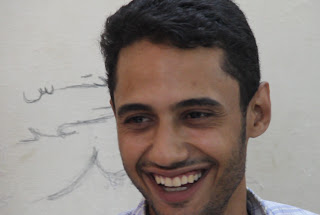Dear readers,
Some of you may have noticed that I haven't posted any new material in the last few weeks. I've accepted a new job coordinating election observation efforts in Egypt's upcoming parliamentary elections for the International Republican Institute. According to their social media policy, I should not be publishing my own commentary on events surrounding the NGO's work. However, I am trying to find new ways to write in the meantime. I hope you all will stay posted and bear with me!
Also, this piece- Egypt's New Downstream Diplomacy- was published on the Cairo Review's blog last week.
Some of you may have noticed that I haven't posted any new material in the last few weeks. I've accepted a new job coordinating election observation efforts in Egypt's upcoming parliamentary elections for the International Republican Institute. According to their social media policy, I should not be publishing my own commentary on events surrounding the NGO's work. However, I am trying to find new ways to write in the meantime. I hope you all will stay posted and bear with me!
Also, this piece- Egypt's New Downstream Diplomacy- was published on the Cairo Review's blog last week.

